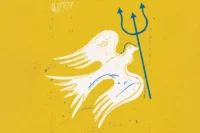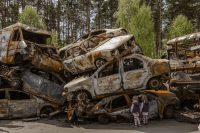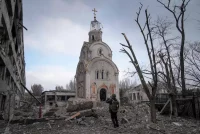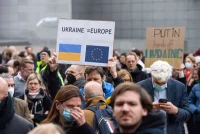
Putin y su chantaje nuclear
En los tiempos de Brézhnev —en los años de juventud de Vladimir Putin—, el 9 de mayo era una fecha señalada para el militarismo, de ensalzamiento de las armas y del poderío. Podría olvidarse, al menos por un momento, que la guerra por elección de Leonid Brézhnev se libraría y se perdería en Afganistán menos de dos décadas después de que los festejos del 9 de mayo comenzaran. Del mismo modo, la guerra que será probablemente la última de Putin se está librando y perdiendo hoy en Ucrania.
Durante ambos conflictos, la ciudadanía occidental se preocupó, comprensiblemente, por la posibilidad de una guerra nuclear.… Seguir leyendo »















